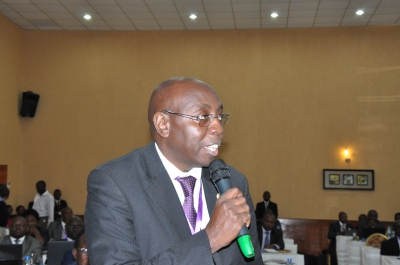The Commercial Court has issued stringent regulations to lawyers who represent litigants in court, in a bid to guard against case backlogs.
Case backlog refers to court cases not resolved within two years, and in a communication to lawyers in private practice, Justice Geoffrey Kiryabwire, the Head of the Commercial Court, warned the lawyers face financial penalties should they fail to adhere to court’s standard legal practice to avoid the piling up of cases.
The Judge advised the lawyers to adhere to all the fourteen regulations issued that include among others, advocates following up cases, use of witness statements to avoid wasting time as well as use written submissions.
Available records in court indicate that advocates delay case hearings by failing to prepare in advance and calling for unwarranted adjournments.
“Penalties should be enforced for delaying trial,” Justice Kiryabwire wrote, in respect to the new stringent regulations introduced by legal experts, adding: “Advocates who fail to comply with the time limits as allocated by the court, would be penalised in costs.”
In a related development lawyer Sam Ogutti Gwapeto, who works with Kabugo, Tamale and Company advocates, when asked about the new regulations, admitted that they have helped advocates work faster. “In the past some of us used to delay cases just for the sake of it, but this is not possible now,” said Ogutti Gwapeto.
Another Kampala Lawyer Bob Mugume, of Mugume and Company Advocates, said the new regulations were agreed upon by the legal fraternity. “So far they have served us better and our clients are happy with the speed at which they are being served,” Mugume said.
Both Ogutti and Mugume told this reporter at the Commercial Court in Kampala that they have handled cases involving commercial banks and businesses, where the banks have attached properties for failure by their clients to pay loans and interest as scheduled.
Meanwhile, a recent official report released in March by Case Backlog Reduction Committee (CBRC), indicates there are more than 155,400 cases pending at all levels of courts as of January 31, 2017. Of these, 7,837, which have been in the system for at least two years, commercial cases constitute two percent.
The committee chaired by Justice Richard Buteera cited ‘incompetence and corruption’ as some of the reasons for backlog in their report.
The findings followed the 2015 National Court Case Census, which revealed that 114,809 cases had not been disposed of, with one in every four pending for more than a decade.
The Commercial Court’s jurisdiction covers civil cases including banking, insurance, securities exchange, maritime, law and arbitration issues.
The perceived corruption, delays, lack of specialised commercial expertise and weak enforcement are the barriers to the effective operation of the Commercial Court, legal experts say.
According to the World Bank and legal experts, faster resolution of commercial disputes is a good indicator of the ease of doing business in any country.
The Commercial Court, according to officials, was initially set up to hear relatively small value cases, before a Ushs5 million threshold was introduced but in 2007 the threshold was raised to Ushs 50 million (US$15,000) to edge out smaller value cases.







